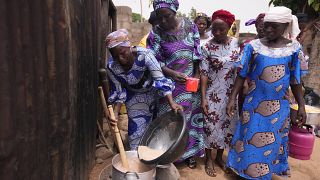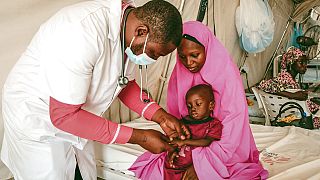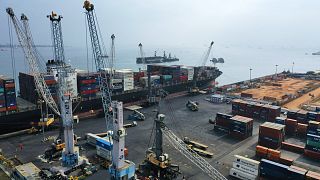Agriculture
In southern Angola droughts are cyclical and are getting more severe.
The Angolan government has invested in agricultural training provided by field schools (ECA's) in order to help local communities to maximize crop yields.
The initiative is supported by the government, international NGO's and the European Union.
"Farmers already know, it just takes coordination. Planning is key within the agricultural calendar of any village or community. They always have some doubts in the fight against pests and diseases, in the technique of land preparation", said agricultural expert, Eduardo Álvaro.
From choice of seeds, to the type of produce and how it is grown using natural fertilisers, these are only some of the techniques that are taught in these schools.
Peasants also learn what not to do, like avoiding uncontrolled burning.
Maria Muapeletchi Limala, is an ECA facilitator. She acquires new knowledge and helps others in the process.
"My way of farming has also changed. Before I used to do unnecessary burning. At the school I learned how to do controlled burning...", says the young farmer.
A total of 139 schools have already been implemented across three provinces in southern Angola: Huíla, Cunene and Namibe. The aim is to reach 300 schools, covering 8,000 peasants, including water infrastructures for human consumption.













01:24
South Sudan: World Food Programme airdrops food, warns of famine
01:45
Empowering youth in agriculture could boost global economy, FAO report says
01:00
Hamas gives 'positive' response to 60-day ceasefire proposal but says talks needed on implementation
01:39
Driven to starvation, Sudanese eat weeds and plants to survive
01:15
Morocco says 2024 was the hottest year with temperatures reaching 47.7 degrees
02:08
Gunman attack in north-central Nigeria: death toll climbs to 150